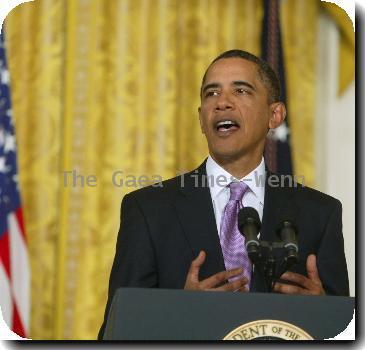New Japan government names Cabinet, maintains key minister posts but adds fresh faces
By Jay Alabaster, APTuesday, June 8, 2010
Japanese PM keeps core Cabinet on economy, defense
TOKYO — Japan’s prime minister named his new Cabinet on Tuesday, keeping core members to tackle the country’s deep economic and foreign policy issues but adding a fiery reform advocate and a deficit hawk to win back voters ahead of upcoming elections.
Naoto Kan also said he would honor an agreement with Washington to move a key U.S. Marine base to a less crowded part of Okinawa — an issue that led to the downfall of his predecessor.
Japan’s sixth prime minister in four years, Kan was officially sworn in late Tuesday in a ceremony with Emperor Akihito.
His new administration has touted a new direction and fiscal reform to deal with Japan’s huge public debt. It faces the challenge of wooing back voters angered by his predecessor’s broken campaign promises and financial scandals. The first test is upper house elections next month.
Kan acknowledged the economic and social struggles that have plagued Japanese society since an investment bubble burst 20 years ago. He mentioned the country’s 30,000 suicides per year and promised to “rebuild Japan from its foundation and turn it into a better country.”
“I will achieve strong economy, strong finance and strong social security as a whole,” he declared at a news conference after naming his Cabinet.
Ex-Prime Minister Yukio Hatoyama — also from Kan’s Democratic Party of Japan — stepped down last week after just eight months in office amid criticism for failing to keep a campaign promise to move U.S. Marine Corps Air Station Futenma off Okinawa.
Kan said that while he would not break a pact with the U.S. to keep the base on Okinawa, he also recognized the islanders’ fierce opposition and said he would work to alleviate the burden on the island, which hosts more than half the 47,000 U.S. troops in Japan under a security pact.
“We must proceed with the issue based on the agreement that we have reached,” he said. “It is a very difficult issue that has caused the nation a lot of worry. But I will do my best to provide leadership.”
He said that the base fracas does not reflect a shift away from Washington in Tokyo’s diplomatic stance.
“For the past 60 years since World War II, the United States has been a cornerstone of Japanese foreign policy, and it must remain essential,” he said.
Kan said he hopes to meet with President Barack Obama during a summit of the G8 industrialized nations this month in Canada.
The retention of the foreign and defense posts are especially important given increased tensions in the region after a South Korean warship was sunk by a North Korean submarine two months ago, as well as Tokyo’s negotiations over Futenma.
But Kan, known for his sometimes explosive temper and for exposing a government cover-up of HIV-tainted blood products in the mid-1990s, also added some new, younger members.
Among the new picks are Renho, a former model and television announcer turned parliamentarian who gained widespread popularity in the media as she grilled bureaucrats in public budget debates last year. Renho at 42 will be the youngest member of the new Cabinet, becoming minister of administrative reforms. Her father is Taiwanese and she goes by one name.
“She’s pretty impressive. She was sharp as a knife when she was going at her questioning,” said Sheila Smith, a senior fellow at Council on Foreign Affairs in Washington.
Kan, who had been finance minister, will be replaced by former subordinate Yoshihiko Noda, who favors financial discipline and is against heavy public spending or more borrowing by Tokyo.
Noda must take the lead in crafting the new strategy on fiscal reform, which is expectedthis month. Japan has the largest public debt among industrialized nations, at 218.6 percent of its gross domestic product in 2009, according to the International Monetary Fund.
He has said he sees the Greek debt crisis as a warning for Japan’s tattered public finances.
With upper house elections coming up next month, Kan’s reputation and common roots could boost the DPJ’s fortunes ahead of the vote, analysts say.
A poll published Tuesday in the national Sankei newspaper showed that 57 percent of recipients have high expectations for the new government, and support for the party has recovered to 31 percent, versus 18 percent from before Hatoyama stepped down.
The Sankei survey was conducted through random telephone interviews of 1,000 eligible voters. It did not give a margin of error, but that sampling size would normally have a margin of about 5 percentage points.
Associated Press writers Eric Talmadge, Mari Yamaguchi, Malcolm Foster and Shino Yuasa contributed to this report.
Tags: Asia, Barack Obama, East Asia, Foreign Policy, Japan, North America, Tokyo, United States, Yukio Hatoyama




